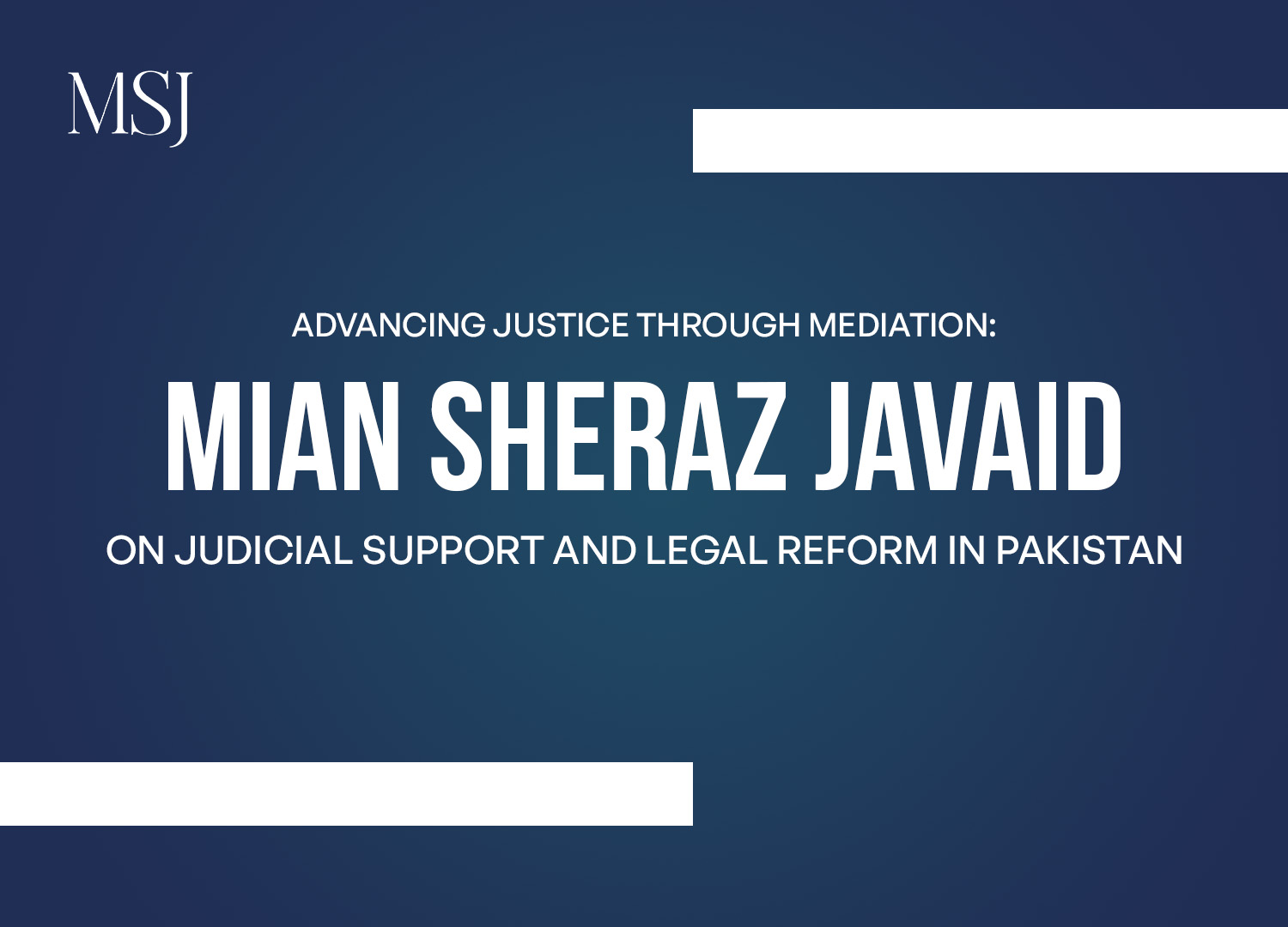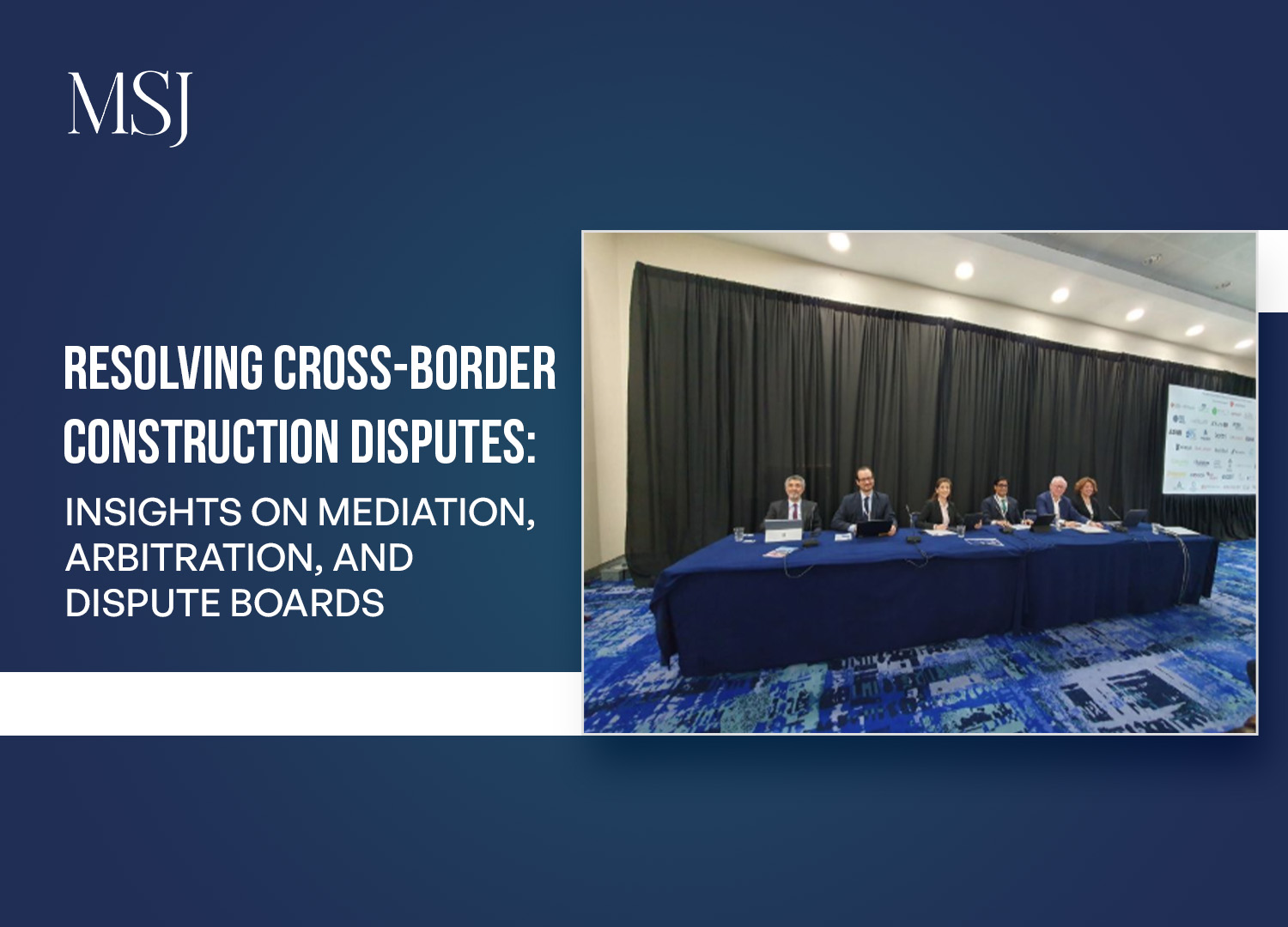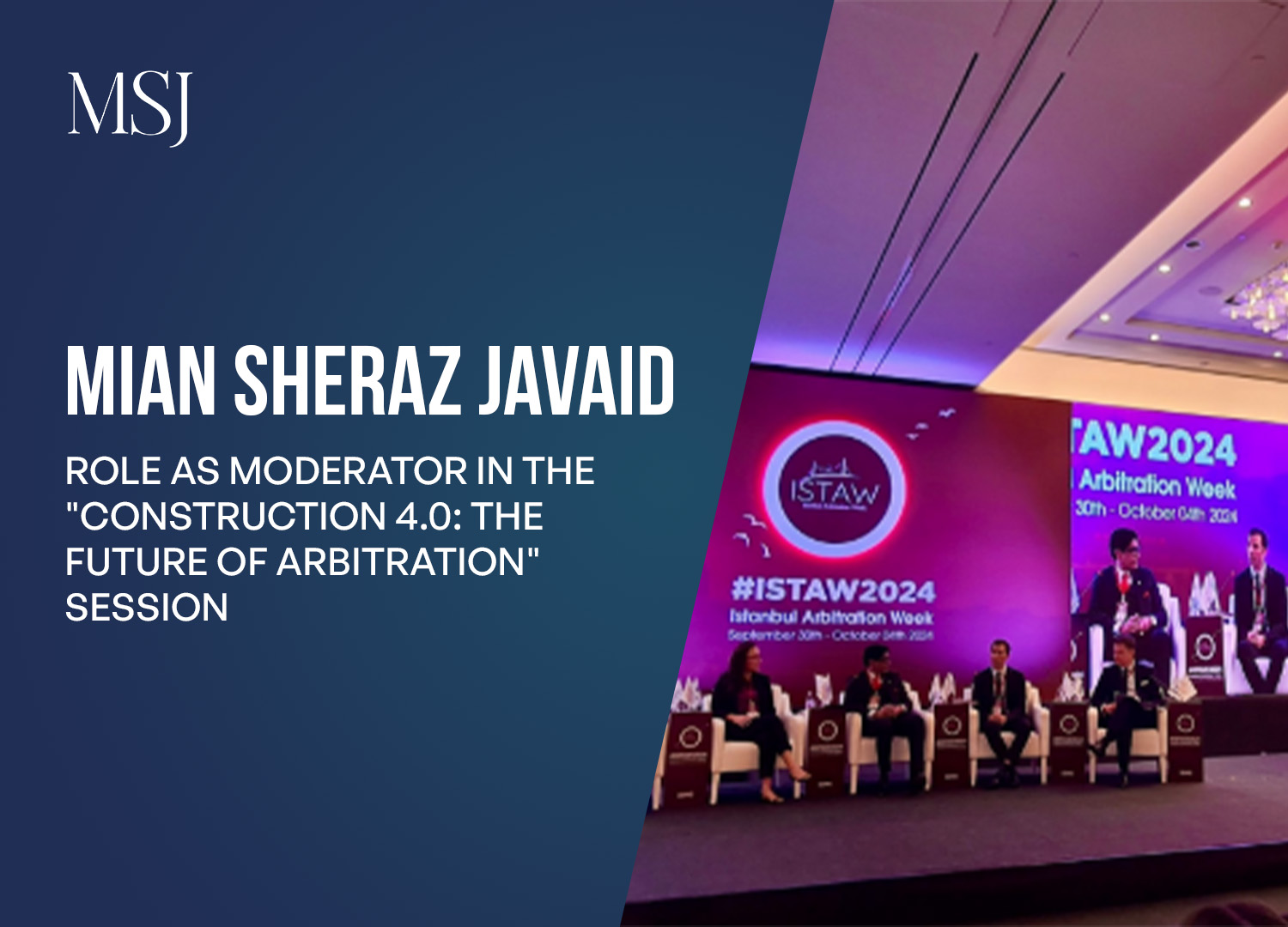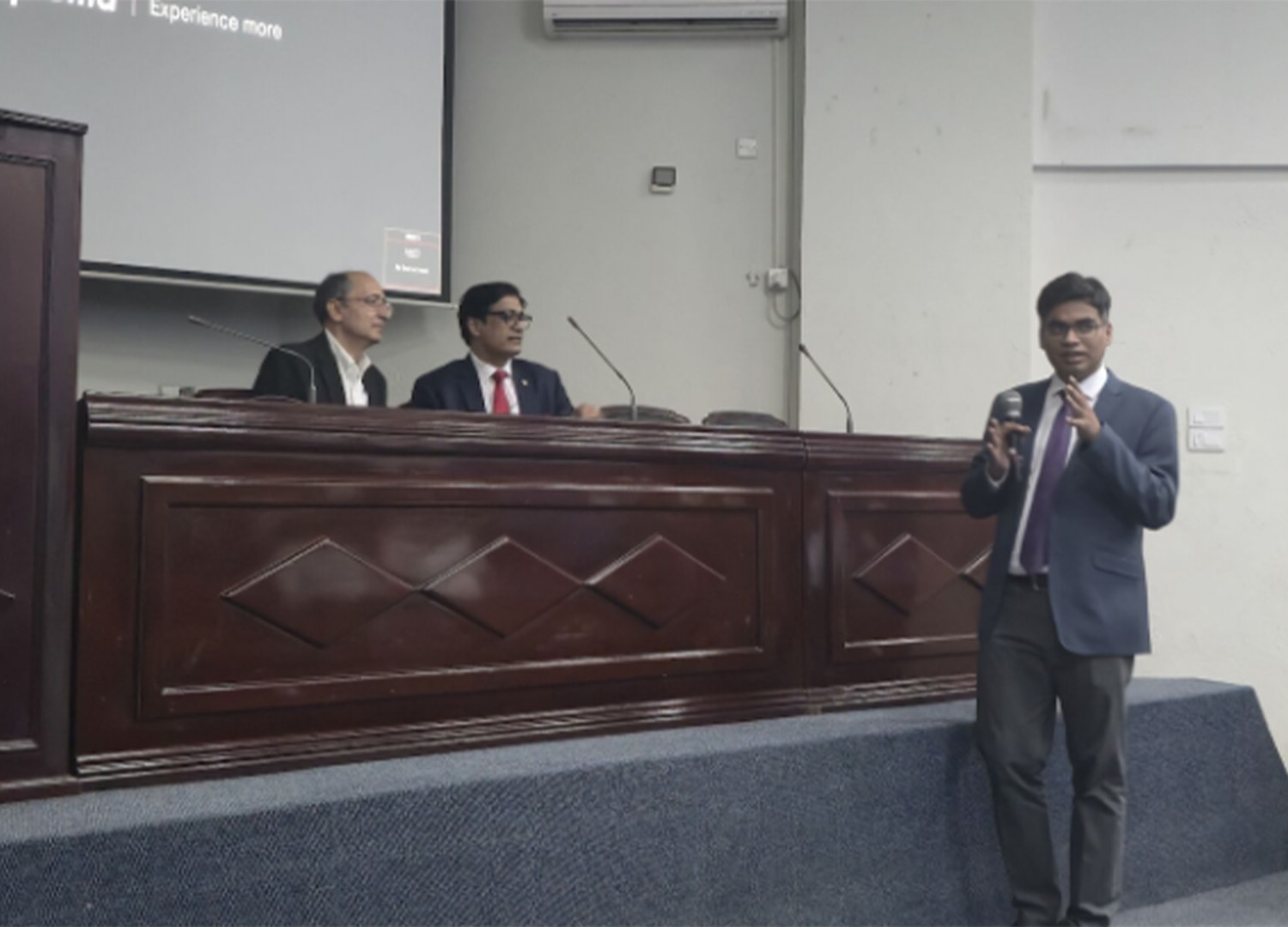Understanding the value of dispute boards
INTRODUCTION
During a seminar organised by the Ciarb Egypt Branch, Mian Sheraz Javaid delivered a presentation and keynote address that outlined the significance of dispute boards in the construction industry. His presentation focused on the political, economic, and strategic value of dispute boards and highlighted their significance beyond the legal sphere. Additionally, it focused on the increasing use of dispute boards in Pakistan, especially in the World Bank, ADB-funded projects, and the China-Pakistan Economic Corridor (CPEC) initiatives.
Sheraz’s address dealt with the value of dispute boards and their relevance beyond the legal framework and argued that, while dispute boards have traditionally been viewed as part of alternative dispute resolution (ADR), their impact and influence extend far beyond this narrow view. In his presentation, Sheraz proposed that dispute boards play an important role in preventing disputes before they escalate, resolving existing conflicts, and ensuring the timely delivery of infrastructure projects. Such an impact is crucial for economic growth, especially in developing countries like Pakistan.
EVOLUTION OF DISPUTE BOARDS
In his address, Sheraz discussed the evolution of dispute boards since their inception in the 1960s. Discussing the Eisenhower Tunnel, the presentation outlined the inception of dispute boards in the United States since the 1970s and how they became more widely adopted for global and international projects during the 1980s. Over the last five decades, their effectiveness and popularity have grown due to their perceived value for money. Dispute boards not only cost less than arbitration or litigation—estimated at 0.05%–0.03% of a project’s total cost—but also resolve disputes quickly and efficiently. One example is the World Bank’s report that stated that dispute boards resolve 98% of disputes referred to them, avoiding the costly and time-consuming process of arbitration. Additionally, dispute boards have been known to reach a decision in as little as 84 days, making them a highly efficient method for resolving conflicts in the construction industry.
TYPES OF DISPUTE BOARDS
Sheraz’s address noted that there are two primary kinds of dispute boards: the Dispute Adjudication Boards (DABs) and the Dispute Avoidance and Adjudication Boards (DAABs). While DABs issue binding decisions that have to be complied with immediately, DAABs are more proactive, aiming to resolve the disagreement before it escalates into a formal dispute. This is in line with the broader move of the construction industry towards better collaboration and dispute prevention. This change is reflected in the 2017 FIDIC conditions, which have made DAABs mandatory instead of the older DAB model, which reflects the shift towards more collaborative and prevention-focused dispute resolution.
DISPTUE BOARDS IN PAKISTAN
Dispute boards are popular worldwide, but their adoption in Pakistan has been limited, which was a significant point of discussion in the presentation. Although institutions such as the World Bank and ADB have established and successfully implemented dispute boards into projects that they fund in Pakistan, this is still the rarest of occurrences in domestic construction contracts. Sheraz noted that the PEC was among the early advocates for using dispute boards in Pakistan and attempted to implement them as far back as 2007. To date, however, they are still found mainly in international projects like World Bank and ADB-financed projects or in mega-infrastructure projects like CPEC.
Additionally, Sheraz discussed a very crucial argument for the long-term economic and strategic benefits that the use of dispute boards can have on domestic construction contracts in Pakistan. This would then highlight the savings on cost, efficiency improvement, and risk mitigation from dispute boards that would significantly enhance the viability and success of infrastructure projects in Pakistan. Indeed, CPEC projects worth above $100 billion have successfully proven that the project velocity ensures timely completion and prevents such prolonged disputes, thereby minimising possible delaying strategies through maximum economic impact. Notable is the Dasu Dam project, which kept all timeliness because of the prompt interaction of the Dispute Adjudication Board.
Another notable point of discussion during the presentation was how the World Bank and ADB, which have committed significant funding to infrastructure projects in Pakistan, consider dispute boards an important protection for their investments. Dispute boards ensure that conflicts are resolved efficiently and transparently, thus protecting the financial interests of these organisations and facilitating the successful completion of infrastructure projects. Sheraz cited examples of ADB-funded projects in Pakistan, including the TAPI Gas Pipeline Project and the Naulong Integrated Water Resources Development Project, where the use of dispute boards has helped ensure smoother project execution. To further support the adoption of dispute boards, organisations like the ICC, FIDIC, Ciarb, and DRBF have developed their own sets of standard dispute board rules. These rules can be adopted by interested parties to ensure a tested and workable dispute resolution framework, promoting greater consistency and reliability in the use of dispute boards in Pakistan.
Despite gaining a good entry into international projects in Pakistan, dispute boards rarely gain currency among domestic construction contracts. While it was the Pakistan Engineering Council that introduced the concept of dispute boards in 2007, the widespread application of this mechanism has remained slow. Sheraz also mentions the fact that, although dispute boards remain rare in domestic contracts, there is some positive change, particularly through efforts of the PEC's update of its conditions of contract, aligned with international best practices, such as acceptance of DAABs.
DISPUTE BOARDS IN THE FUTURE
In conclusion, Sheraz emphasised the importance of dispute boards for the future construction industry in Pakistan. The transforming legal and regulatory environment, complemented by growing international adoption of the use of dispute boards for project dispute resolution, presents Pakistan with a golden opportunity for further improvement of its mechanisms on dispute resolution and efficiency of its infrastructure sector. This upcoming implementation of updated PEC conditions of contract, which would necessitate the use of DAABs, is likely to be an incentive for the more frequent adoption of dispute boards. Consequently, it is expected to add stability, transparency, and efficiency to the construction industry of Pakistan. Through his analysis, Sheraz proposed closer collaboration between international practitioners and local experts for the support of growth of dispute boards in Pakistan and successful development of large-scale infrastructure projects like CPEC.










